| Listing 1 - 10 of 10 |
Sort by
|
Book
ISBN: 389669233X Year: 1998 Volume: 35 Publisher: Konstanz : UVK Medien,
Abstract | Keywords | Export | Availability | Bookmark
 Loading...
Loading...Choose an application
- Reference Manager
- EndNote
- RefWorks (Direct export to RefWorks)
Electronic news gathering. --- Internet --- Journalisme électronique
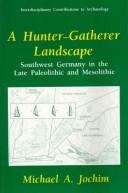
ISBN: 0306457415 0306457407 9780306457418 0306454707 1441986642 Year: 1998 Volume: *8 Publisher: New York Plenum Press
Abstract | Keywords | Export | Availability | Bookmark
 Loading...
Loading...Choose an application
- Reference Manager
- EndNote
- RefWorks (Direct export to RefWorks)
As an archaeologist with primary research and training experience in North American arid lands, I have always found the European Stone Age remote and impenetrable. My initial introduction, during a survey course on world prehis tory, established that (for me, at least) it consisted of more cultures, dates, and named tool types than any undergraduate ought to have to remember. I did not know much, but I knew there were better things I could be doing on a Saturday night. In any event, after that I never seriously entertained any notion of pur suing research on Stone Age Europe-that course was enough for me. That's a pity, too, because Paleolithic Europe-especially in the late Pleistocene and early Holocene-was the scene of revolutionary human adaptive change. Iron ically, all of it was amenable to investigation using precisely the same models and analytical tools I ended up spending the better part of two decades applying in the Great Basin of western North America. Back then, of course, few were thinking about the late Paleolithic or Me solithic in such terms. Typology, classification, and chronology were the order of the day, as the text for my undergraduate course reflected. Jochim evidently bridled less than I at the task of mastering these chronotaxonomic mysteries, yet he was keenly aware of their limitations-in particular, their silence on how individual assemblages might be connected as part of larger regional subsis tence-settlement systems.
Paleolithic period --- Mesolithic period --- Hunting and gathering societies --- Excavations (Archaeology) --- Paléolithique --- Mésolithique --- Chasseurs-cueilleurs --- Fouilles (Archéologie) --- Germany --- Allemagne --- Antiquities. --- Antiquités --- Paléolithique --- Mésolithique --- Fouilles (Archéologie) --- Antiquités --- Middle Stone age --- Stone age --- Food gathering societies --- Gathering and hunting societies --- Hunter-gatherers --- Hunting, Primitive --- Ethnology --- Subsistence hunting --- Eolithic period --- Old Stone age --- Palaeolithic period --- Antiquities --- Paleolithic period - Germany. --- Mesolithic period - Germany. --- Hunting and gathering societies - Germany. --- Archaeology. --- History. --- Anthropology. --- History, general. --- Human beings --- Annals --- Auxiliary sciences of history --- Archeology --- Anthropology --- History

ISBN: 8882650170 Year: 1998 Publisher: Roma : L'Erma di Bretschneider,
Abstract | Keywords | Export | Availability | Bookmark
 Loading...
Loading...Choose an application
- Reference Manager
- EndNote
- RefWorks (Direct export to RefWorks)
Agriculture, Prehistoric --- Prehistoric peoples --- Hunting and gathering societies --- Agriculture préhistorique --- Homme préhistorique --- Chasseurs-cueilleurs --- Food --- Alimentation --- Sahara --- Nile River Valley --- Nil, Vallée du --- Antiquities. --- Antiquités --- Agriculture préhistorique --- Homme préhistorique --- Nil, Vallée du --- Antiquités --- Cavemen (Prehistoric peoples) --- Early man --- Man, Prehistoric --- Prehistoric archaeology --- Prehistoric human beings --- Prehistoric humans --- Prehistory --- Human beings --- Antiquities, Prehistoric --- Food gathering societies --- Gathering and hunting societies --- Hunter-gatherers --- Hunting, Primitive --- Ethnology --- Subsistence hunting --- Prehistoric agriculture --- Agriculture --- Sahara Desert --- Africa, North --- Nile Valley --- Antiquities --- Primitive societies
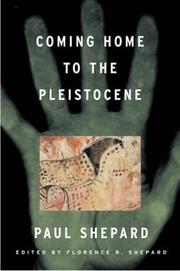
ISBN: 159726847X 1417594233 9781417594238 9781597268479 1559635894 1559635908 9781559635899 9781559635905 Year: 1998 Publisher: Washington, D.C. : Island Press,
Abstract | Keywords | Export | Availability | Bookmark
 Loading...
Loading...Choose an application
- Reference Manager
- EndNote
- RefWorks (Direct export to RefWorks)
Paul Shepard was one of the most profound and original thinkers of our time. Seminal works like The Tender Carnivore and the Sacred Game, Thinking Animals, and Nature and Madness introduced readers to new and provocative ideas about humanity and its relationship to the natural world. Throughout his long and distinguished career, Shepard returned repeatedly to his guiding theme, the central tenet of his thought: that our essential human nature is a product of our genetic heritage, formed through thousands of years of evolution during the Pleistocene epoch, and that the current subversion of that Pleistocene heritage lies at the heart of today's ecological and social ills. Coming Home to the Pleistocene provides the fullest explanation of that theme. The book explicitly addresses the fundamental question raised by Shepard's work: What can we do to re-create a life more in tune with our genetic roots? In this book, Shepard presents concrete suggestions for fostering the kinds of ecological settings and cultural practices that are optimal for human health and well-being.
Hunting and gathering societies. --- Sociobiology. --- Nature and nurture. --- Environment --- Genetics and environment --- Heredity and environment --- Nature --- Nature versus nurture --- Nurture and nature --- Genetics --- Heredity --- Human beings --- Biologism --- Human biology --- Human evolution --- Psychology, Comparative --- Social evolution --- Food gathering societies --- Gathering and hunting societies --- Hunter-gatherers --- Hunting, Primitive --- Ethnology --- Subsistence hunting --- Nurture --- Effect of environment on --- Social aspects --- Hunting and gathering societies --- Nature and nurture --- Sociobiology --- 201 --- 203 --- 330.50 --- AA / International- internationaal --- Sociologie: algemeenheden --- Sociografie. Algemene beschrijving van de gemeenschappen (Sociologie) --- Economische en sociale stelsels: algemeenheden --- Environment and genetics --- Environment and heredity
Book
ISBN: 8886712502 9788886712507 Year: 1998 Publisher: Forlì A.B.A.C.O.
Abstract | Keywords | Export | Availability | Bookmark
 Loading...
Loading...Choose an application
- Reference Manager
- EndNote
- RefWorks (Direct export to RefWorks)
Prehistoric peoples --- Excavations (Archaeology) --- Hunting and gathering societies --- Paleontology --- Archaeological digs --- Archaeological excavations --- Digs (Archaeology) --- Excavation sites (Archaeology) --- Ruins --- Sites, Excavation (Archaeology) --- Archaeology --- Cavemen (Prehistoric peoples) --- Early man --- Man, Prehistoric --- Prehistoric archaeology --- Prehistoric human beings --- Prehistoric humans --- Prehistory --- Human beings --- Antiquities, Prehistoric --- Fossilogy --- Fossilology --- Palaeontology --- Paleontology, Zoological --- Paleozoology --- Historical geology --- Zoology --- Fossils --- Prehistoric animals in motion pictures --- Food gathering societies --- Gathering and hunting societies --- Hunter-gatherers --- Hunting, Primitive --- Ethnology --- Subsistence hunting --- Africa, North --- Barbary States --- Maghreb --- Maghrib --- North Africa --- Antiquities --- Conferences - Meetings --- Primitive societies
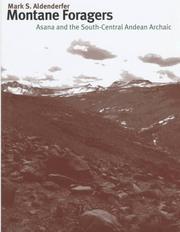
ISBN: 0877456216 Year: 1998 Publisher: Iowa City : University of Iowa Press,
Abstract | Keywords | Export | Availability | Bookmark
 Loading...
Loading...Choose an application
- Reference Manager
- EndNote
- RefWorks (Direct export to RefWorks)
Indians of South America --- Hunting and gathering societies --- Excavations (Archaeology) --- Indiens d'Amérique --- Chasseurs-cueilleurs --- Fouilles (Archéologie) --- Antiquities. --- Antiquités --- Asana Site (Peru) --- Asana River Valley (Peru)
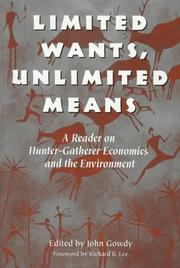
ISBN: 9781559635554 155963555X 1597260304 1597268747 1429495324 9781429495325 9781597260305 9781597260299 1597260290 9781597269193 1597269190 9781597268745 1597260290 1417539518 9781417539512 1597268828 9781597268820 1559635878 9781559635875 1559635878 9781559635875 1559635886 9781559635882 1610912756 1423707796 9781423707790 9781610912754 1559635797 9781559635790 1559635800 9781559635806 Year: 1998 Publisher: Washington, D.C. : Island Press,
Abstract | Keywords | Export | Availability | Bookmark
 Loading...
Loading...Choose an application
- Reference Manager
- EndNote
- RefWorks (Direct export to RefWorks)
Hunting and gathering societies. --- Human ecology. --- Sustainable development. --- Chasseurs-cueilleurs --- Ecologie humaine --- Développement durable --- Habitat conservation --- Biodiversity conservation --- Biodiversity --- Biological diversity conservation --- Conservation of biodiversity --- Diversity conservation, Biological --- Gender mainstreaming in biodiversity conservation --- Maintenance of biological diversity --- Preservation of biological diversity --- Conservation of natural resources --- Ecosystem management --- Conservation of habitat --- Habitat preservation --- Habitat protection --- Habitat (Ecology) --- Preservation of habitat --- Protection of habitat --- Nature conservation --- Finance. --- Conservation --- Protection --- Conservation of Natural Resources --- Finance --- economics --- E-books --- Carrying Capacity --- Deforestation --- Desertification --- Environmental Protection --- Natural Resources Conservation --- Protection, Environmental --- Capacities, Carrying --- Capacity, Carrying --- Carrying Capacities --- Conservation, Natural Resources --- Natural Resources --- Protected areas --- Lands, Preserved --- Lands, Protected --- Preserved lands --- Protected lands --- Reserves (Protected areas) --- Public lands --- Conservation of nature --- Nature --- Nature protection --- Protection of nature --- Applied ecology --- Conservation biology --- Endangered ecosystems --- Natural areas --- Development, Sustainable --- Ecologically sustainable development --- Economic development, Sustainable --- Economic sustainability --- ESD (Ecologically sustainable development) --- Smart growth --- Sustainable development --- Sustainable economic development --- Economic development --- Ecology --- Environment, Human --- Human beings --- Human environment --- Ecological engineering --- Human geography --- Food gathering societies --- Gathering and hunting societies --- Hunter-gatherers --- Hunting, Primitive --- Ethnology --- Subsistence hunting --- Environmental aspects --- Social aspects --- Effect of environment on --- Effect of human beings on --- Human ecology --- History. --- California --- Environmental conditions --- Hunting and gathering societies

ISBN: 1446250261 1446238024 1282622978 9786612622977 0857026151 9780857026156 9781446250266 0761953868 9780761953869 0761953876 9780761953876 9781446238028 9781282622975 Year: 1998 Publisher: London : SAGE,
Abstract | Keywords | Export | Availability | Bookmark
 Loading...
Loading...Choose an application
- Reference Manager
- EndNote
- RefWorks (Direct export to RefWorks)
'The Globalization of News' aims to demonstrate just how the news agencies have contributed to the process of globalisation and simultaneously, to the process of national construction.
News agencies. --- Foreign news. --- Flow of news, International --- International flow of news --- International news --- News, Foreign --- News flow, International --- World news --- Journalism --- News agencies --- Press --- News-gathering organizations --- News services --- News wire services --- Wire services --- Newspapers --- Foreign news --- #SBIB:309H19 --- #SBIB:AANKOOP --- Nieuwsagentschappen --- Influence.
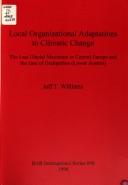
ISBN: 0860548848 Year: 1998 Volume: 698 Publisher: Oxford : Archaeopress,
Abstract | Keywords | Export | Availability | Bookmark
 Loading...
Loading...Choose an application
- Reference Manager
- EndNote
- RefWorks (Direct export to RefWorks)
Gravettian culture --- Hunting, Prehistoric --- Animal remains (Archaeology) --- Gravettien --- Chasse préhistorique --- Restes d'animaux (Archéologie) --- Austria --- Grubgraben Site (Austria) --- Autriche --- Grubgraben (Autriche : Site archéologique) --- Antiquities. --- Antiquités --- -Gravettian culture --- -Hunting, Prehistoric --- -Hunting, Primitive --- Hunting and foraging, Prehistoric --- Hunting and gathering, Prehistoric --- Prehistoric hunting --- Gravettien culture --- Pavlovien culture --- Paleolithic period --- Perigordian culture --- Archaeozoology --- Zooarchaeology --- Zoology in archaeology --- Archaeology --- Bones --- Animal paleopathology --- Methodology --- Antiquities --- -Austria --- Chasse préhistorique --- Restes d'animaux (Archéologie) --- Grubgraben (Autriche : Site archéologique) --- Antiquités --- Hunting, Primitive

ISBN: 0520920570 0585165629 9780520920576 9780585165622 0520211286 0520212770 Year: 1998 Publisher: Berkeley Los Angeles London University of California Press
Abstract | Keywords | Export | Availability | Bookmark
 Loading...
Loading...Choose an application
- Reference Manager
- EndNote
- RefWorks (Direct export to RefWorks)
This analysis of Navajo creation and origin myths shows that the Navajo religion is as complete and nuanced an attempt to answer humanity's big questions as the religions brought to North America by Europeans.
Navajo mythology --- Navajo Indians --- Ethnic & Race Studies --- Gender & Ethnic Studies --- Social Sciences --- Diné Indians (Navajo) --- Navaho Indians --- Athapascan Indians --- Indians of North America --- Mythology, Navajo --- Religion --- Religion and mythology --- Navajo mythology. --- HISTORY / Indigenous Peoples of the Americas. --- Religion. --- american southwest. --- christianity. --- comparative religion studies. --- creation myth. --- good and evil. --- health rituals. --- herding. --- humanity. --- hunting and gathering society. --- indigenous peoples. --- internal historical conflict. --- judaism. --- native american culture. --- native american religion. --- native peoples. --- navajo creation myth. --- navajo narratives. --- navajo origin myth. --- navajo religion. --- navajo society. --- navajo. --- order and chaos. --- religion. --- religious studies. --- social organization. --- the underworlds. --- tricksters.
| Listing 1 - 10 of 10 |
Sort by
|

 Search
Search Feedback
Feedback About UniCat
About UniCat  Help
Help News
News